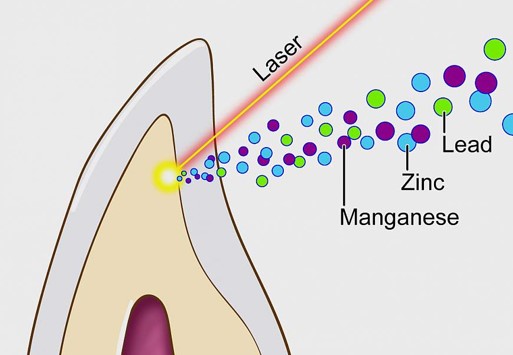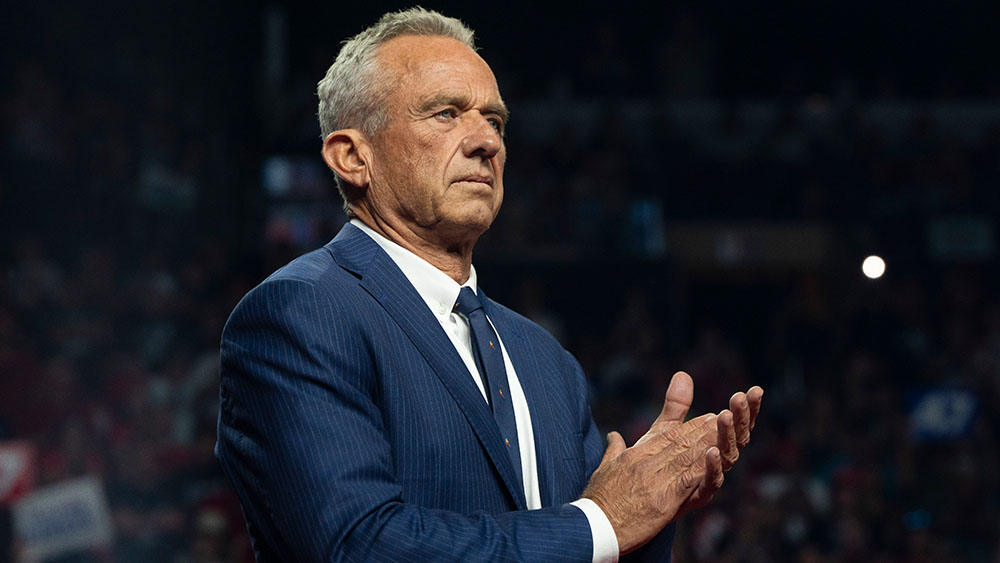
A report by Human Rights Watch (HRW) has revealed that five of the world’s major automakers aren't properly mapping their supply chains to eliminate links to forced labor programs in China's Xinjiang region.
The region in China's northwest is an important aluminum producer and accounts for at least nine percent of global supply. The report suggests that the industry is linked to state-sponsored labor transfer programs that have been accused of forcing Uyghurs and other Muslim minorities into jobs.
This means legacy automakers Toyota Motor Corp., General Motors Co. (GM) and Volkswagen AG (VW), along with electric vehicle manufacturers Tesla Inc. and China's BYD Co., are at greater risk of ties to forced labor, reported HRW. The sector's reliance on coal to power aluminum smelters also adds to the risks.
The HRW, a U.S.-headquartered group, based its findings on Chinese company reports, state media articles and government statements. (Related: Over 1.1 million Tesla electric cars in China RECALLED over dangerous braking defect.)
While China claims that its rural labor programs help residents escape poverty, the U.S. and other countries think that the system is coercive. They also believe that many Uyghurs are scared to refuse when they are being ordered by a government that has been accused of imprisoning more than a million of them in recent years.
The dispute has involved various industries, such as solar panels, cotton and produce like tomatoes. The issue has also interrupted trade flows and gotten industry giants like Nike Inc. stuck in the aftermath.
While aluminum has faced scrutiny before, the intricacy of the supply chain, where the metal is bought and sold by commodity traders and then processed into alloys, also makes it easy to hide a product’s origins. In the past, China has continuously refuted forced labor allegations.
China even described earlier research into automakers' ties to Xinjiang as "ill-intentioned smears." China's Ministry of Industry and Information Technology didn’t immediately respond to requests for comment on the report.
Lack of transparency a hurdle in investigations
Pinning down the scale of China’s use of forced Uyghur labor is complicated because the government only allows very limited access to investigators researching any allegations of human rights abuses.
Citing a Xinhua report, HRW reported that between 2014 and 2019, at least 2.76 million rural laborers per year were relocated to Xinjiang. Many of them hail from the region’s south, where the majority of Uyghurs live.
However, the figure may include transfers of Han Chinese, the country’s ethnic majority, and multiple relocations of the same person in one year. The report said there were 3.2 million transfers in 2021.
Most carmakers have policies in place to avoid forced labor and require their suppliers to address such risks, but HRW added that firms also lack the necessary knowledge of their aluminum supply chains.
Responding to HRW, Tesla said that in several cases it had mapped its supply chain back to mines and didn’t discover evidence of forced labor. However, Tesla did not provide details on what proportion of its aluminum supply it has traced to the smelter level or reveal the origins of the supply.
Meanwhile, VW claimed that it had prioritized certain aluminum parts since it has tens of thousands of suppliers, making full supply-chain transparency very challenging. The report found that VW's responsible sourcing measures don’t cover its non-controlled Chinese joint ventures.
GM told HRW that it is continuously working with partners to resolve any potential forced-labor risks in the supply chain, but the report added that the company didn’t give details on how it provides oversight of sourcing by Chinese joint ventures.
Governments such as Australia, Canada and the U.K. should enforce laws to ban imports linked to forced labor and "require companies to disclose their supply chains for commodities with a high risk of links to human rights abuses," advised HRW.
In America, which already targets Xinjiang products, the Forced Labor Enforcement Task Force makes aluminum a "high-priority sector" under the Uyghur Forced Labor Prevention Act. The U.S. also requires listed companies to file reports annually confirming that they don't source high-risk commodities from Xinjiang, according to the HRW report.
Jim Wormington, senior researcher and advocate for corporate accountability at Human Rights Watch, warned that car companies aren't always aware of the extent of their links to forced labor in Xinjiang in their aluminum supply chains.
He added that consumers should know if "their cars might contain materials linked to forced labor or other abuses."
Visit RoboCars.news for more stories about legacy automakers and EV manufacturers.
Watch the video below to learn how Nike uses slave labor for their products.
This video is from the Chinese taking down EVIL CCP channel on Brighteon.com.
More related stories:
G-7 leaders call out China over human rights abuses.
Tesla drivers in NYC grapple with long waiting times due to lack of fast charging stations for EVs.
Disney censors "The Simpsons" episode mentioning forced labor camps in China.
Sources include:
Please contact us for more information.




















